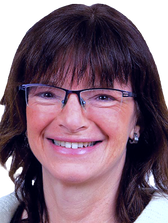Conference
15-16.09.22
Reverse Engineering
of Digital Measures
A conference on patient-centric digital evidence.
by ETH Zürich and FNIH.
Zürich, Switzerland
15-16 September 2022
ETH Zürich, HG Main Building

Programme
2 Days 4 Use Cases
Go to Agenda for detailed information
Thu.15.09.2022 - 11:00-22.00 CET
Qualification of New Digital Evidence
Use Case 1: MOBILISE-D:
Connecting digital mobility assessment to clinical outcomes for regulatory and clinical endorsement
Use Case 2: IDEA FAST:
Identifying digital endpoints to assess fatigue, sleep and activities in daily living in neurodegenerative disorders and immune-mediated inflammatory diseases
Fri. 16.09.2022 - 11:00-22:00 CET
From Efficacy to Effectiveness
Use Case 3: Roche DHTs for SMA:
Digital Health Technologies to better measure outcomes in Spinal Muscular Atrophy
Use Case 4: SCZ:
The Accelerating Medicines Partnership® Program – Schizophrenia (AMP® SCZ)
* If you can't join the conference you can watch the live stream for participation.

About the conference
What is it about?
In February 2020, the FNIH Biomarkers Consortium hosted a conference to examine progress in, and establish a path forward for, incorporating remote digital monitoring into clinical evidence generation. This highly interactive, collaborative meeting crystalised and catalysed much of the recent progress we have seen in digital measurement of health. Nearly three years later, we are launching the next iteration of the meeting, to be hosted by the ETH in Zurich, Switzerland. One of the key achievements was an increased awareness of how patient centricity is critical for success in developing new digital measures.
Meeting Overview and Aims
Co-organised with the FNIH Biomarkers Consortium, the meeting is titled “Reverse Engineering of Digital Measures.” It will build on the success of the first meeting, sharing the experiences of four extended case studies and examining progress, opportunities and challenges. The interactive case studies will involve regulators, industry, patients and innovators and emphasise how patient centricity is shaping the development and validation of new evidence across settings including regulatory interactions, reimbursement and product development.
Over two full afternoons, we will explore how human-centered, holistic, evidence-based science is being put into practice and examine how this is shaping regulatory and payer interactions, patient and human engagement, product development and embedding of digital measures into decision making throughout care delivery.
Jörg Goldhahn and Steve Hoffmann
The meeting will be in presence, following current Swiss hygiene guidelines, with live streaming. We are really hoping as many of you as possible will be able to attend, we want to continue the robust discussion and exchange of ideas started in the first meeting.
Human-centric
Patients, participants, caregiver are the ultimate stakeholders for our work — we all talk about engaging them, how far are we from achieving that? What are best practices and shining examples (or failures)?
Holistic
Integration across health services, telemedicine, etc, how is our understanding of disease changing? Efforts at breaking down silos across treatment and data sources. Examples of integrated care, personalized care, predictive/preventative interventions, etc.
Evidence-based
Demonstrating fit for purpose (regulators), treatment value (insurers) and business value (pharma, startups)
Information and Papers from the first meeting, hosted by the FNIH in 2020:
• Meeting Overview including agenda andsession recordings
• Remote digital monitoring in clinical trials in the time of COVID-19.
Goldsack JC, et al. Nature Reviews Drug Discovery (2020)
• Remote Digital Monitoring for Medical Product Development.
Izmailova EA, et al. Clin Transl Sci (2020)
Participants
150
Use Cases
4
Sessions
12
Speakers
24
Speakers

Steve Hoffmann
FNIH
Elena Izmailova Koneksa Health
Jörg Goldhahn
ETH Zürich
Ursula Costa
Basel Area Swiss

Foteini Orfaniotou
Roche
Thanneer Mailai Perumal Roche
Francesca Cormack
Cambridge Cognition
Wojtek Piwko
Takeda
Ieuan Clay
VivoSense
Beatrix Vereijken
NTNU
Justin Baker
Partners
David Nobbs
Roche
Arne Müller
Novartis
Lada Leyens
Roche



Thorsten Vetter
EMA
John Varaklis
PHYSIQ
Dana Connors
FNIH

John Torous
Harvard
Medical School

Christopher Bull
Newcastle University

Tova Gur Arieh
Nitzan Association

Clemens Becker
Robert Bosch Krankenhaus

Alison Keogh
Trinity College Dublin

Wim Dartee
Novartis

Andrea Cereatti
Politecnico di Torino
Committees
General Co-Chairs
Jörg Goldhahn, ETH Zürich
Steve Hoffmann, FNIH
Technical Programme Co-Chairs
Ieuan Clay, Vivosense
Laurenz Baltzer, ETH Zürich
Steering Committee
Jörg Goldhahn, ETH Zürich
Steve Hoffmann, FNIH
Dana Connors, FNIH
Thorsten Vetter, EMA
Peter Groenen, Idorsia
John Varaklis, PhysIQ
Organizing Committee
Alexandra Bündner, ETH Zürich
Anja Finkel, ETH Zürich
Anja Rüdisüli, ETH Zürich
Sponsors















